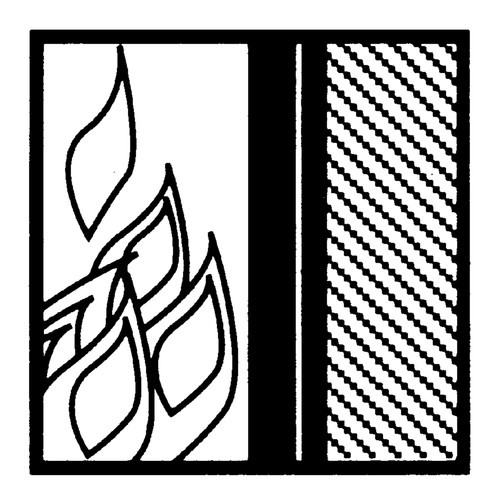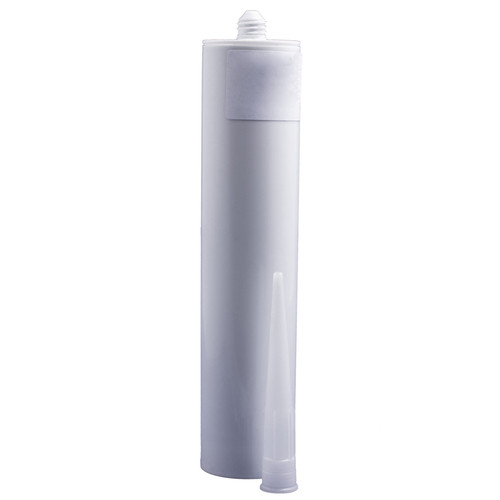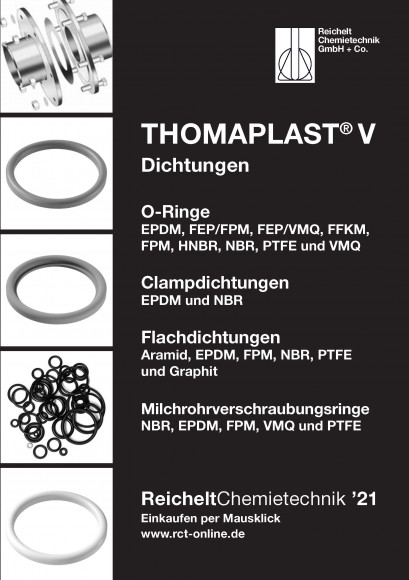High-Therm Filling Compound for Ceramic and Metal
Application area
Paste-like compound for bonding and sealing of metals/metals, ceramic/ceramic, metals/ceramic.
As surface protection against corrosion and oxidation in the high temperature range.
Technical specification
Colour: gray/whitish
Consistency: trowelable, viscous paste of low porosity for painting, leveling and dipping
Continuous temperature load: +1,400 °C after curing
Softening temperature: +1,500 °C
Melting point: +1,600 °C
Spec. weight: 3.2
Viscosity: >2.5 x 106 cp at +20 °C
Pot life: approx. 30 min. to 1 h in the air
Curing: at room temperature after 48 hours, better properties after heat treatment
Moisture resistance: good (after heat treatment)
Resistance to acids and alkalis: very good (except HF)
Resistance to oxidation: very good
Resistance to solvents: very good
Dielectric strength: >3 kV/mm
Resistivity: >109 Ohm/cm at room temperature
Thermal expansion: 4 - 6 x 10-6/K
Shrinkage: 2 - 4 % (linear at +150 to +500 °C)
General Information
Use as adhesive for ceramic and metal elements in high temperature range, glaze for protection from corrosion and chemical impacts, as casting compound for mould making (formed parts) and for insulation applications, dip coating for fixing of heating wires, casting compound (cement compound) e.g. for insertion of knife blades (into metal or ceramic handles).
Use as IC fault analysis in preparation technology, as sealing material for gas-tight applications (sealings), adhesive bonding of metals and ceramics, as refractory lining in industrial furnace construction, fixation and embedding of heating wires, resistance wires, and thermo wires, coating of metal surfaces for protection from oxidation processes.
One-component adhesives curing at room temperature by evaporation of the binder (water).
Bonding best takes place at room temperature, thus ensuring a natural drying. The drying time depends on the porosity of the materials to be bonded. In such cases, a drying time of 24 hours is sufficient.
The parts to be bonded should be exposed to a slight and constant pressure. A heat treatment during the bonding process improves the mechanical, thermal and electrical properties considerably.
For optimization of the bonding process it is advantageous to brush the glue joints with concentrated sulfuric acid, thus increasing the resistance to moisture.
The adhesives are resistant to solvents, and after heat treatment up to +900 °C also to most acids, including conc. hydrochloric acid and sulfuric acid, except to hydrofluoric acid.
The adhesive is absolutely fire-proof and not skin-irritating when cured. But the one-component material is strong alkaline (approx. pH 12) before application so that skin contact should be avoided.
In surroundings with high moisture please note:
Depending on the degree of cure, the respective one-component adhesive forms a microporous structure which can make up approx. 2 to 5 % of the total volume. The degree of porosity depends on the cure cycle type, and whether one or more layers are applied.
The size and the number of pores are determined by the evaporation temperature of the binder (water). If the water is expelled by an accelerated heat treatment, more and larger pores are formed. The natural evaporation is approx. 36 hours, the number of pores is accordingly very low.
All High-Therm adhesives are cured faster by heat treatment. Due to heat treatment, all properties improve considerably.
| Item | Image | Design |
Inhalt ml
|
Einheit Stück
|
Price Euro* |
Buy |
|---|---|---|---|---|---|---|
| 332047 |
|
Dose | 250 | 1 | 121.00 | |
| 332048 |
|
Dose | 1.000 | 1 | 270.00 | |








